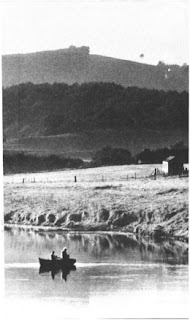A Fortunate Woman comes to us because Polly Morland's 80-something mother became demented, copped a 'Rona, was rattled through the corridors of the NHS and finished up, all shook, in a care home; she died in the midst of her daughter's project. Morland had to clear the family home for sale and turned up a dusty copy of A Fortunate Man. Which happens to be set in the valley which Morland calls home! This tumble of happenstance impels her to email the current doctor and compare notes. Indeed, A Fortunate Man has been the turn-key to the current doctor's life; and so the two women meet, hit it off, and the story tumbles out onto the page. It is compelling, graphic and inspiring. It's available on Borrowbox both as ebook and earbook.
Continuity in general practice yields significant benefits: "These include closer adherence to medical advice, better uptake of vaccines, reduced use of out-of-hours service, lower referral rates, better retention of doctors, better patience satisfaction and fewer emergency hospital admissions". If you know your doctor knows you, then you're more likely to respect and listen to them.
There's a nice anecdote about a home visit to a dying man where the doctor's ministrations are delayed because the district nurse is putting the old chap to bed. The doctor spends some useful minutes listening to the man's wife . . .
At that moment, the living room door flies open and the district nurse bustles out.
'Sorry to keep you, doctor. One of us will be back to see him tomorrow late morning' She turns to the man's wife 'SO HE'S ALL SORTED PET . . . YOU GOT THAT? SO DON'T YOU WORRY, YOU'RE DOING GRAND"
It is revealed that the star of the drama had confided to this new Nurse that his wife was very deaf and a bit slow. We guess to add some comic relief to the end-of-life story.
Inevitably, given that the book was conceived, researched and written since "Wuhan 2019", a chunk of it covers the pandemic and its impact on a small rural community in West England. I suppose it's fair that these events weigh heavily on the story because CoViD-19 is the most significant medical crisis since 1918 . . . and this is ultimately a book about community medicine. But taking the long view, I reckon that 50 years down the road, readers will pick up A Fortunate Woman for its insights into empathy, healing, community and respect rather than PPE, vaccine roll-out and procurement scandals.

No comments:
Post a Comment